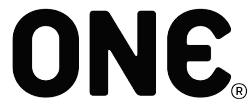Since the beginning of the COVID-19 pandemic, college students’ access to fun, comprehensive, and inclusive sex education has become further restricted. University budgets have been cut, workshops have been pushed online, and many long-standing annual events were canceled entirely.
While sex education is a fundamental component of public health, many students found themselves unable to access information in the same way as before. For other college students access to shame-free, inclusive sex education on campus was never a reality.
To help fill the information and pleasure gap ONE Condoms teamed up with Cassandra Corrado, the educator behind Feminist Sex Ed, to launch the Feminist Sex Ed Scholarship Contest. Students, faculty, and staff members from across the United States wrote-in to nominate their colleges and universities. Twenty-six colleges and universities were nominated, each with their own reasons why bringing sex ed programming to campus was a challenge.
For some schools the restriction was budgetary.
“Our campus has gotten better but we don't have a budget or an office that specifically focuses on this. We have started by creating a ‘Sex Month’ where we try to have educators (1 a week) for the month of March. We succeeded in 2019 but then COVID hit and all programming was reduced due to that, and our budget was taken away.”
For others, the institution’s religious affiliation made inclusive, pleasure-positive sex education impossible.
“I would say the biggest barrier is the fact that we attend a Catholic college. The administration is very clear about the fact that we must follow the Catholic Church and their teachings. Therefore, no comprehensive sex education.”
Additionally for some of these religiously-affiliated schools it wasn’t just about institutional policy — it was about the culture those policies created, too.
“We are in DESPERATE need for any amount of sex ed here. The majority of our faculty and students are heavily blinded by purity culture. Girls not wanting to ‘lose their virginity’ have unprotected & uneducated anal sex to ‘stay pure’, no one is on birth control, and everything is done in secret. Shame and guilt are everywhere. No condoms in sight. We need help!!”
Every single nominated campus deserves access to comprehensive sex education, but ultimately, only one winner could be chosen. Or so we thought!
Two ‘sister schools’ which shared academic and student life facilities were nominated and the campus representatives from each agreed to work together. The winners of the Sex Ed Scholarship Contest were St. Mary’s College and the University of Notre Dame: two Catholic-affiliated institutions with policies that prevent comprehensive sex ed from taking place on campus when the content isn’t aligned with the Catholic church’s values.
The campus representatives chose Queer Sex 101 as their workshop topic with the hopes of providing information for students of all genders and sexual orientations. In addition to their live online workshop, the campus representatives were provided with sexual wellness kits to distribute around campus. Each wellness kit contained condoms, dental dams, and lube sample packs so that attendees could have physical items to see and touch throughout the workshop.
The Queer Sex 101 workshop took place for the St. Mary’s and Notre Dame students online at the end of September 2021. Although moving to online events has been challenging and frustrating for many students, online sex education creates an additional level of safety and comfort. Students’ names were anonymized in the live chat, cameras were off, and no one could see the attendee list — that meant students could participate without the fear of receiving conduct sanctions from their school, or being outed.
Here are some of the questions they asked:
- “Is it important to disclose your sexuality to your doctor? Or does it/should it not matter?”
- “How can you safely use internal condoms for anal sex? Is it the same as using it for vaginal sex? Can they accidentally get stuck inside the anus?”
- “How do you navigate religious trauma and sex? (besides therapy)”
- “Do blood tests from your primary care doctor find STIs/STDs?”
- “Can you explain more about who is at higher risk for HIV?”
Without the Feminist Sex Ed Scholarship Contest these students wouldn’t have had an opportunity during undergrad to ask a sex educator these questions. By focusing on high-need, low-access institutions, ONE and Feminist Sex Ed were able to reach students whose typical sex ed context is shame and judgment — not compassion and honest information.
“Thank you so so much! As someone who barely even received ‘normal’ sex ed this was so informative and affirming for me as a queer person. ❤️” — student attendee
“Thank you very much! I learned a lot and this has been so affirming!” — student attendee
Comprehensive sex education has the potential to change lives, but only if the students who need it can access it. The Feminist Sex Ed Scholarship Contest helped bridge that gap for this group of students, and ONE is proud to have supported and facilitated this educational opportunity.




Share:
ONE and Planned Parenthood Partner for Condoms to Colleges Initiative
ONE® x Sex & Self